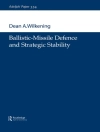How the antitax fringe went mainstream—and now threatens America’s future
The postwar United States enjoyed large, widely distributed economic rewards—and most Americans accepted that taxes were a reasonable price to pay for living in a society of shared prosperity. Then in 1978 California enacted Proposition 13, a property tax cap that Ronald Reagan hailed as a “second American Revolution, ” setting off an antitax, antigovernment wave that has transformed American politics and economic policy. In The Power to Destroy, Michael Graetz tells the story of the antitax movement and how it holds America hostage—undermining the nation’s ability to meet basic needs and fix critical problems.
In 1819, Chief Justice John Marshall declared that the power to tax entails “the power to destroy.” But The Power to Destroy argues that tax opponents now wield this destructive power. Attacking the IRS, protecting tax loopholes, and pushing tax cuts from Reagan to Donald Trump, the antitax movement is threatening the nation’s social safety net, increasing inequality, ballooning the national debt, and sapping America’s financial strength. The book chronicles how the movement originated as a fringe enterprise promoted by zealous outsiders using false economic claims and thinly veiled racist rhetoric, and how—abetted by conservative media and Grover Norquist’s “taxpayer protection pledge’—it evolved into a mainstream political force.
The important story of how the antitax movement came to dominate and distort politics, and how it impedes rational budgeting, equality, and opportunities, The Power to Destroy is essential reading for understanding American life today.
Mengenai Pengarang
Michael J. Graetz is professor emeritus at Columbia Law School and Yale Law School and a leading authority on tax politics and policy. He served in the U.S. Treasury’s Office of Tax Policy and is the author and coauthor of many books, including
Death by a Thousand Cuts: The Fight over Taxing Inherited Wealth (Princeton) and
The Burger Court and the Rise of the Judicial Right.












